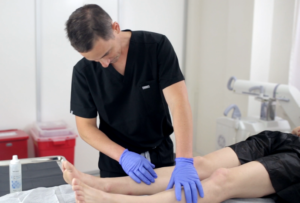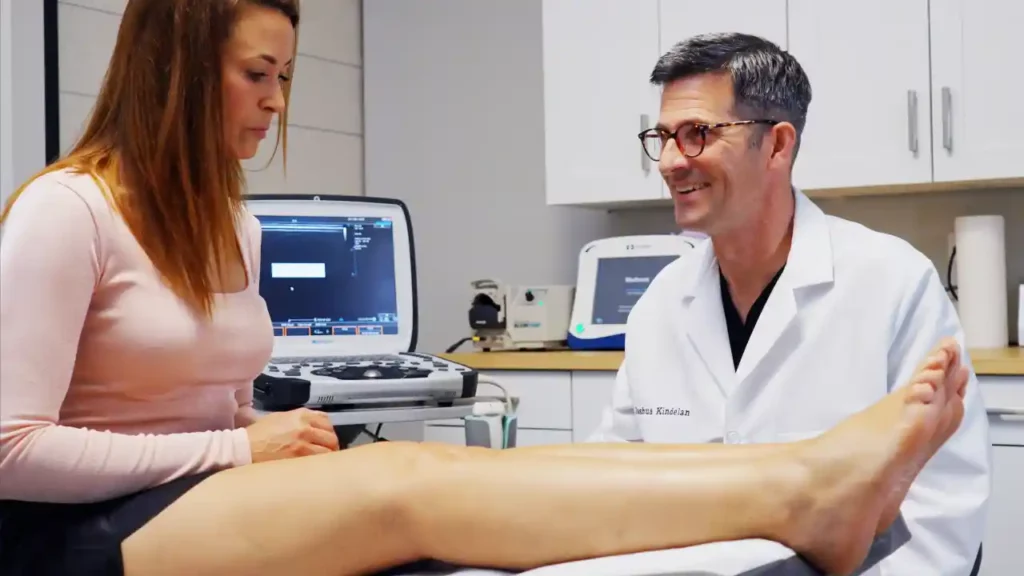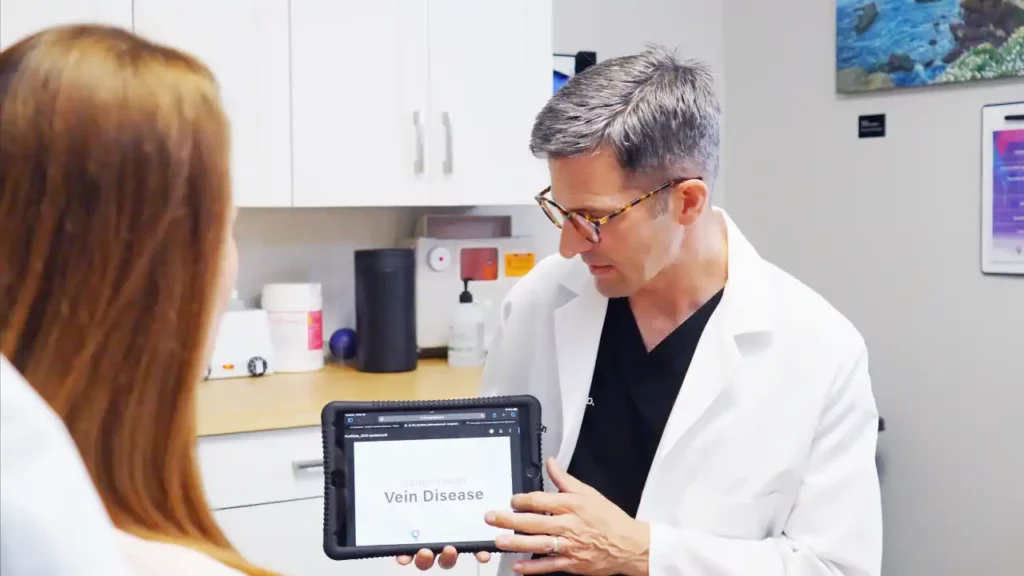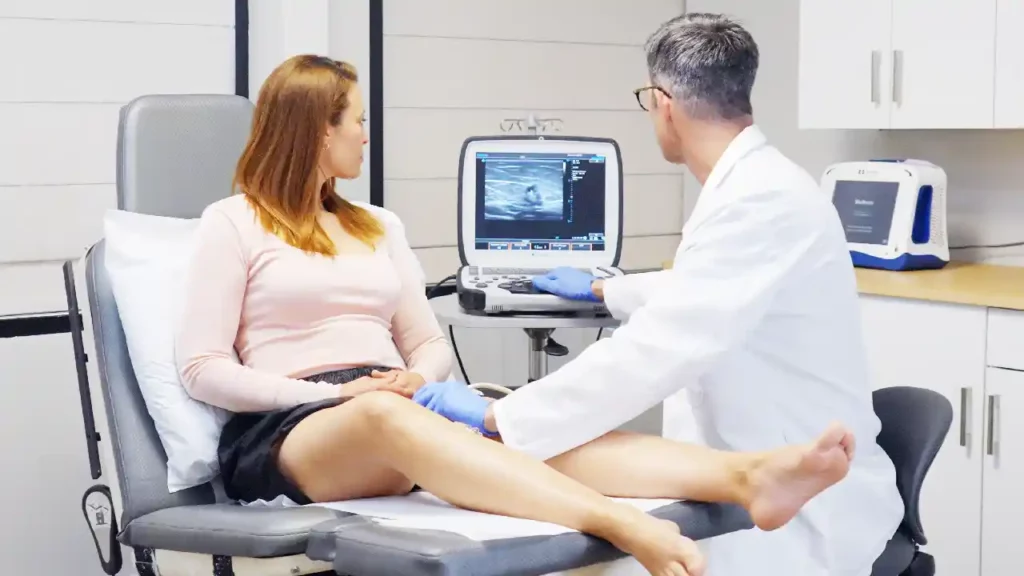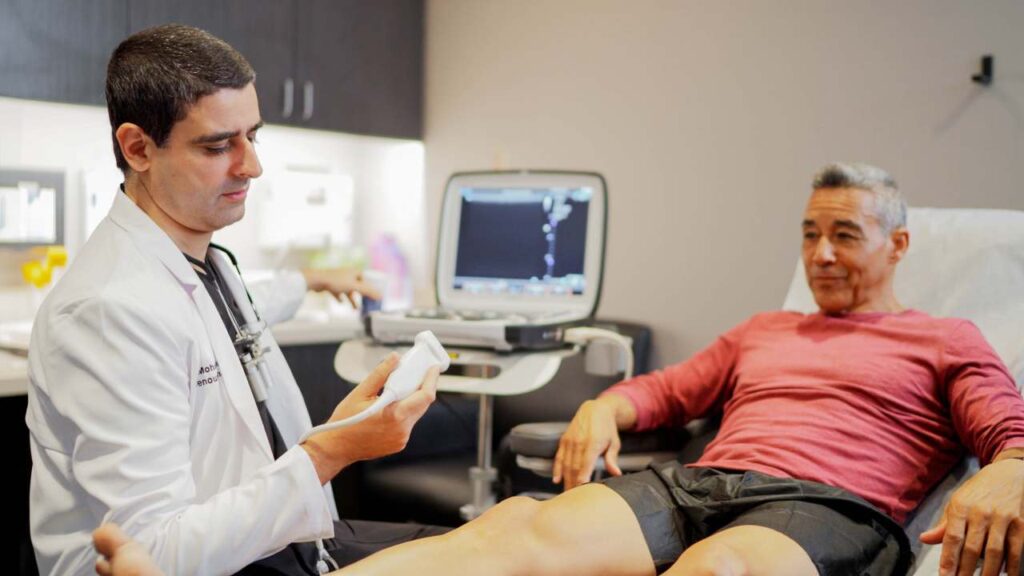What Doctor Treats Varicose Veins?
If you have spider veins and varicose veins, you should consult a vein doctor, medically known as a “phlebologist.” Vein doctors are medical professionals specializing in the diagnosis and treatment of spider veins, varicose veins, and other vein problems. They can come from all fields of medicine, including cardiology, anesthesiology, and cosmetic surgery, provided they have specialized training in the diagnosis and treatment of vein disease.
While varicose veins can be treated by all kinds of healthcare professionals, you should generally contact vein doctors at the leading vein treatment clinics in California. That’s because they’re more likely to specialize in the latest minimally invasive vein treatments, and since they focus exclusively on vein problems, they can guarantee results. Doctors who provide vein treatments amongst numerous other services are more likely to cause side effects or vein disease recurrence.
If you’re looking for vein doctors in California, you should consult Dr. Jasmine Koo or Dr. Billy Schoenfeld, two of the best vein doctors in San Jose and San Diego. They have specialized training in the latest minimally invasive spider vein and varicose vein treatments and a perfect track record. Dr. Schoenfeld is a Harvard-trained vein doctor with official recognition from the American Board of Venous and Lymphatic Medicine, making him one of the country’s leading vein experts.
When Should you see a Doctor for Varicose Veins?
Varicose veins are dense masses of blood vessels that protrude out of the skin’s surface and look like twisted, tangled, or knotted ropes bulging out from the skin. They’re essentially dilated blood vessels with excessive blood accumulation, which is a consequence of chronic venous insufficiency. Venous insufficiency is a medical condition wherein the collapse of vein valves makes blood flow backward and accumulate in the leg veins, leading to vascular dilation.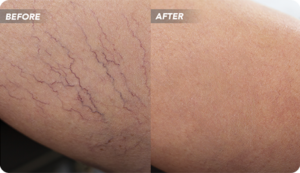
If you have varicose veins, you should definitely contact a vein doctor as soon as possible. That’s because varicose veins are symptomatic of advanced vein disease. If blood continues accumulating in your leg veins, you may eventually experience excessive vascular dilation, which can lead to burst blood vessels. That would lead to profuse bleeding, for which you’ll have to be taken to an emergency room.
Ideally, you should contact a vein doctor long before you have varicose veins. The following are the early warning signs of chronic venous insufficiency:
- Restless leg syndrome
- Leg heaviness
- Frequent leg cramps
- Leg swelling
- Leg heaviness
- Leg pain
- Spider veins
- Skin discoloration
- Leg ulcers
The aforementioned symptoms indicate you may have chronic venous insufficiency, especially if they worsen at the end of the day or after long periods of sitting or standing still. You should contact a vein doctor if you experience these symptoms because prompt vein treatment can help you avoid varicose veins and the advanced complications of vein disease.
Do Dermatologists Treat Varicose Veins?
Yes, dermatologists also treat spider veins and varicose veins if they’re sufficiently trained in the diagnosis and treatment of vein disease. However, dermatology is the branch of medicine related to skin problems, and spider veins and varicose veins aren’t related to the skin. Even though dermatologists often provide vein treatments, you should ideally consult dedicated vein doctors and phlebologists for optimal results and treatment.
Does Drinking Water Help Varicose Veins?
Drinking water is good for general health and vascular health. It improves blood circulation and strengthens the vein valves, thereby minimizing the risk of chronic venous insufficiency, reducing the risk of varicose veins. However, drinking water won’t treat existing varicose veins because it can’t fix broken or damaged vein valves. If you have varicose veins, you must consult a vein doctor specializing in minimally invasive varicose vein treatments.
Can you get rid of Varicose Veins Without Surgery?
Yes, you can (and should) get rid of varicose veins without surgery. In the past, varicose veins could only be treated with surgical procedures, such as vein ligation, venous bypass surgery, and vein stripping. Vascular surgeries involve multiple excisions, hospitalization, general anesthesia, and a higher risk of complications, such as infections and deep vein thrombosis.
However, recent advancements in technology and medicine have paved the way for minimally invasive varicose vein treatments, such as radiofrequency and laser ablation. These procedures involve small incisions through which the vein doctor can destroy the diseased saphenous vein responsible for your vein problems. These are in-office and outpatient procedures with minimal risk of side effects.
As such, you should only consult vein doctors that recommend minimally invasive varicose vein treatments.
What Exercise is Best for Varicose Veins?
Running, swimming, cycling, and yoga are the best exercises for varicose veins and general vascular health. These exercises improve blood circulation, which minimizes the risk of vein disease. They also strengthen your calf muscles, pushing the accumulated blood towards your heart, thereby alleviating the symptoms of varicose veins. As such, cardiovascular exercises that work your calf muscles can alleviate the discomfort caused by varicose veins. However, the relief is temporary — minimally invasive varicose vein treatments are the only long-term solutions to vein problems.
Do Varicose Veins get Worse with age?
Yes, varicose veins worsen with age because the underlying venous insufficiency is a chronic condition. If left untreated, blood will continue accumulating in the leg veins, leading to increased vascular dilation. After some time, the dilated vein walls may burst, leading to profuse bleeding. As such, you must seek varicose vein treatments as soon as possible.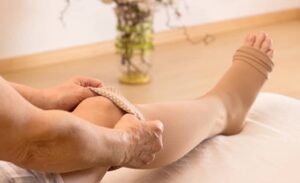
What Happens if you Leave Varicose Veins Untreated?
If you don’t treat varicose veins and chronic venous insufficiency, you may experience advanced complications, such as skin discoloration, leg ulcers, skin disease, and deep vein thrombosis. The lack of effective blood circulation in your legs may lead to skin discoloration and the formation of non-healing wounds, also known as leg ulcers. Furthermore, the accumulated blood in the leg veins may turn into blood clots (deep vein thrombosis), which can be painful and dangerous. To avoid these complications, you must contact a vein treatment clinic in California as soon as possible.
